Regulation
CFTC Appeals Decision Favoring Kalshi On Election Betting Contracts
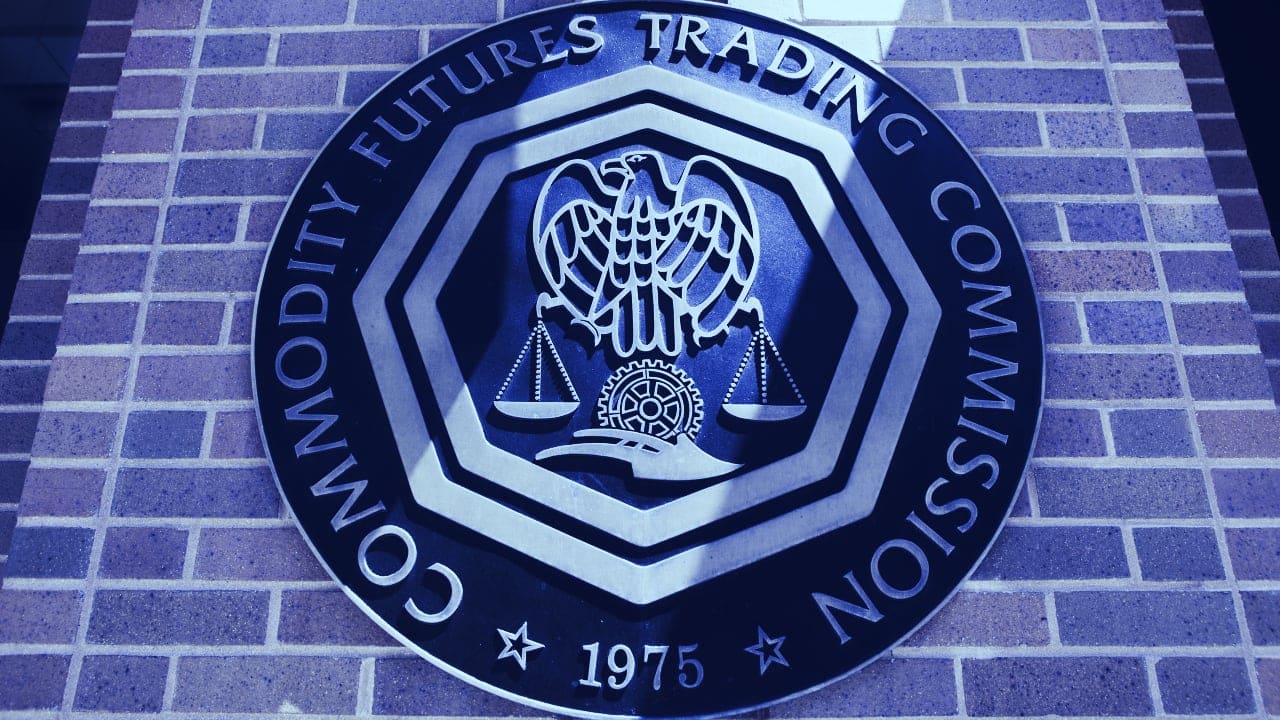
The U.S. Commodity Futures Trading Commission (CFTC) is challenging a recent court decision that would allow prediction market platform Kalshi to offer contracts related to U.S. election outcomes. The ongoing legal battle has raised concerns about the integrity of election betting and the extent of the CFTC’s regulatory authority.
Court Hearing Pits CFTC Against Kalshi
At a hearing before the U.S. Court of Appeals for the District of Columbia Circuit, CFTC General Counsel Rob Schwartz and Kalshi’s counsel Yaakov Roth argued as to why the firm should be allowed to operate political prediction markets. The hearing was held after a district court decision that said the CFTC cannot stop it from offering contracts based on which party will control both the houses of the Congress.
Soon after the decision, the CFTC went for an application for a temporary stay which was granted by the appeals court.
Appeals court judge: “is there any evidence, as opposed to ‘reason to believe’ or hypothesizing … that short term manipulations of election betting markets do affect election process or outcome?”
CFTC gc: “I don’t have that.”Hearing in Kalshi case: https://t.co/2mPz6P2M7F
— m/arc 🧭 (@MarcHochstein) September 19, 2024
The three judges, Patricia Millett, Cornelia Pillard and Florence Pan, challenged both the arguments and appeared rather skeptical of the reasoning provided. The judges questioned the CFTC about its view on the Commodity Exchange Act, as well as the consequences of permitting the opportunity to place a bet on the electoral outcome.
Concerns Over Market Manipulation and Election Integrity
The U.S. Commodity Futures Trading Commission’s concerns included threats to market integrity and manipulation of election-related prediction markets. Schwartz pointed out that the political prediction markets are more susceptible to false information and manipulation as compared to other event markets.
He stated that permitting these contracts could lead to misperceptions among the public and thus erode the already weak confidence in the U. S. elections, particularly during a time when more citizens doubt the validity of the electoral system.
Schwartz also noted that while traditional futures contracts are based on factual and accurate information, political markets could be skewed by fake polls, fake news, and other agenda-driven media. He noted that the CFTC cannot adequately monitor these underlying events and therefore it remains challenging to promote fairness and transparency in the markets.
Kalshi Defends Market Viability and Regulatory Compliance
Kalshi’s attorney, Yaakov Roth, pushed back against the concerns surrounding Kalshi’s compliance measures, noting that regulated prediction markets are more transparent and provide more oversight than less regulated foreign platforms. Roth argued that markets that are supported by a robust and comprehensive legal regime are less likely to be manipulated than the unregulated foreign markets that Kalshi seeks to compete with, while operating in a regulated environment.
According to Roth, the firm has also incorporated ‘Know Your Customer’ measures to ascertain that only approved market players transact and recommended that there should be a local regulated market to overcome the dependency on overseas markets with less transparency. He maintained that permitting these regulated prediction markets would offer better protection to the participants and minimize the chances of distortion by foreign elements.
Hence, in the upcoming 2024 U. S. elections, the appeals court is expected to make a ruling as soon as possible. The CFTC has been working on a regulation that is likely to prohibit the trading on political events as the commission says that such contracts are detrimental to the public interest. Legal experts have argued that the courts or the legislature may have to step in and offer guidance on the future of election-related prediction markets.
CFTC Chairperson Rostin Behnam has also expressed concerns over the likelihood of the financial regulator being involved in election contracts, saying that such actions may be outside the scope of the agency.
Disclaimer: The presented content may include the personal opinion of the author and is subject to market condition. Do your market research before investing in cryptocurrencies. The author or the publication does not hold any responsibility for your personal financial loss.
Regulation
Kraken Obtains Restricted Dealer Registration in Canada

Cryptocurrency exchange Kraken has obtained a Restricted Dealer registration in Canada. The registration comes after completing a pre-registration undertaking (PRU) process with Canadian authorities.
The exchange has also announced the appointment of Cynthia Del Pozo as its new General Manager for North America. Del Pozo will oversee Kraken’s growth initiatives in Canada.
Kraken Completes PRU Process In Canada
Kraken’s Restricted Dealer registration marks the completion of a thorough pre-registration undertaking (PRU) process with Canadian regulators. The registration places Kraken under the supervision of the Ontario Securities Commission (OSC). This oversight ensures users have access to secure crypto products within a properly regulated local ecosystem.
According to the Canadian Securities Administrators (CSA), the Restricted Dealer registration is one of eight firm registration types in Canada. This particular classification is used for firms that “do not quite fit under any other category.” It also comes with specific requirements and conditions set by securities regulators.
Kraken’s regulatory achievement comes during a period of change in the Canadian crypto sector. Just months earlier, competitor Gemini exchange announced its departure from the Canadian exchange market by the end of 2024. This was a move that surprised many and raised questions about cryptocurrency regulation clarity in the country.
Kraken Introduces New Canadian GM
Del Pozo has joined Kraken to lead its Canadian operations as the new General Manager for North America. She has nearly 15 years of experience in corporate development, operations, and fintech consulting. Del Pozo will help to guide Kraken’s expansion across Canada during this important phase of crypto’s development in the region.
“Canada is at a turning point for crypto adoption, with a growing number of investors and institutions recognizing digital assets as a vital part of the financial future. I’m thrilled to join Kraken’s mission at this critical moment, and to lead our expansion efforts, ensuring we continue to serve our clients long-term with innovative and compliant products,” said Del Pozo.
In her role, Del Pozo will focus on strengthening Kraken’s regulatory relationships and also scaling the company’s presence throughout North America.
Del Pozo also commented on the registration achievement: “This Restricted Dealer registration is testament to the high bar Kraken has always set for consumer protection, client service, and robust security. We’re excited to continue expanding our world-class investment platform and to deliver innovative products that provide real-world utility to Canadians.”
The Exchange’s Continued Growth In Canada
Over the past two years, the cryptocurrency exchange has shown steady expansion in Canada while working through the PRU process with regulators. During this period, the exchange has doubled its team size and monthly active users.
According to the official blog post figures, the firm now has more than $2 billion CAD in total client assets under custody. Kraken has also increased support for some of the most popular cryptocurrencies. It provides several CAD spot trading pairs that enable Canadians to trade crypto without paying expensive foreign exchange fees.
According to Innovative Research Group’s 2024 Investor Survey, 30% of Canadian investors currently own or have owned cryptocurrencies. Likewise, a KPMG Canada survey discovered that 30% of Canadian institutional investors now have exposure to cryptocurrencies, which means widespread adoption across investor types.
Disclaimer: The presented content may include the personal opinion of the author and is subject to market condition. Do your market research before investing in cryptocurrencies. The author or the publication does not hold any responsibility for your personal financial loss.
Regulation
USDC Issuer Circle Set To File IPO In April, Here’s All

USDC issuer Circle is reportedly set to file its initial public offering (IPO) in April as part of the firm’s plans to finally go public. The stablecoin issuer is allegedly already working with top financial institutions to achieve this move.
Circle To File IPO In Late April
According to a Fortune report, Circle is looking to file its IPO in late April, although the listing period remains uncertain. The report noted that when a company files to go public, its shares usually begin trading four weeks later, indicating that the listing could occur in May. However, there is also a scenario where the IPO process could drag on for months.
The stablecoin issuer is reportedly working with investment banks JPMorgan Chase and Citi to achieve its long-anticipated IPO. The firm had previously tried to go public in 2021 under a SPAC arrangement with a shell company.
The US SEC failed to sign off on this arrangement back then, and the company eventually scrapped these IPO plans by the end of 2022 when the crypto exchange FTX collapsed and the broader crypto market experienced a downturn.
Revelation about Circle’s IPO plans comes just days after the stablecoin issuer partnered with NYSE’s parent company to explore USDC’s use in traditional finance (TradFi). Meanwhile, the USDC stablecoin recently launched in Japan following approval from the country’s regulator. Notably, USDC is the first and only global dollar stablecoin approved under Japan’s stablecoin framework.
An Easier Path Now For The Stablecoin Issuer
Circle will likely face less resistance for its IPO plans under the current SEC administration. Under acting Chair Mark Uyeda, the Commission has shown its willingness to work hand in hand with crypto firms, which was missing under Gary Gensler’s administration.
US SEC Chair nominee Paul Atkins has also shown his willingness to change the approach that Gensler’s administration adopted towards crypto firms. During his nomination hearing, the SEC Chair nominee promised to prioritize providing regulatory clarity for the industry.
Circle’s IPO listing would be the biggest since the top crypto exchange Coinbase went public in 2021. Interestingly, Coinbase owns an equity stake in the crypto firm.
The firm’s USDC is currently the second-largest stablecoin by market cap, only behind Tether’s USDT. The stablecoin industry is heating up as more financial institutions look to develop their own stablecoin.
Donald Trump’s World Liberty Financial recently revealed plans to launch its USD1 stablecoin, while asset manager Fidelity is also considering doing so.
Disclaimer: The presented content may include the personal opinion of the author and is subject to market condition. Do your market research before investing in cryptocurrencies. The author or the publication does not hold any responsibility for your personal financial loss.
Regulation
Japan Set To Classify Cryptocurrencies As Financial Products, Here’s All

Cryptocurrency investors in Japan are bracing for impact following a plan to reclassify digital assets as financial products. While the plan has elicited excitement from cryptocurrency enthusiasts in the Far East, the ambitious plan will have to scale several legislative hurdles.
Japan Targets Reclassification Of Cryptocurrencies As Financial Products
According to a report by Nikkei, Japan’s Financial Services Agency (FSA) is inching toward classifying cryptocurrencies as financial products. Per the report, the FSA intends to achieve the reclassification via an amendment to the Financial Instruments and Exchange Act.
Currently, digital assets in Japan are considered crypto assets conferred with property rights and seen as payment means. Under the FSA’s plans, cryptocurrencies in Japan will be treated as financial products in the same manner as traditional financial products.
The FSA says it will adopt a slow and steady approach toward the reclassification, carrying out “a private expert study group” to test the waters. If everything goes according to plan, the FSA will submit the amended bill to Parliament in early 2026.
The classification of cryptocurrencies as financial products will have far-reaching consequences for the local ecosystem. Experts say treating cryptocurrencies as financial products will bring Japan closer to a crypto ETF launch amid a changing regulatory landscape.
Furthermore, the move may lower current cryptocurrency taxation for local investors since existing capital market rules will apply to the asset class.
A Fresh Bill For Crypto Insider Trading Is Underway
Apart from the reclassification, the FSA disclosed plans for new legislation against insider trading. The move flows treating cryptocurrencies as financial products and will strengthen existing investor protection rules.
“It is a direction to establish a new insider trading regulation that prohibits trading based on unpublished internal information,” said the FSA. “We will develop laws to prevent unfair transactions.”
However, Japan’s cryptocurrency scene is heating up to a boil, driven by local and international players. Last week, stablecoin issuer Circle secured approval from the FSA for USDC with top exchanges set to list the stablecoin.
Japan’s Metaplanet has tapped Eric Trump to join its Strategic Board of Advisors as it continues to load up Bitcoin.
Disclaimer: The presented content may include the personal opinion of the author and is subject to market condition. Do your market research before investing in cryptocurrencies. The author or the publication does not hold any responsibility for your personal financial loss.
-
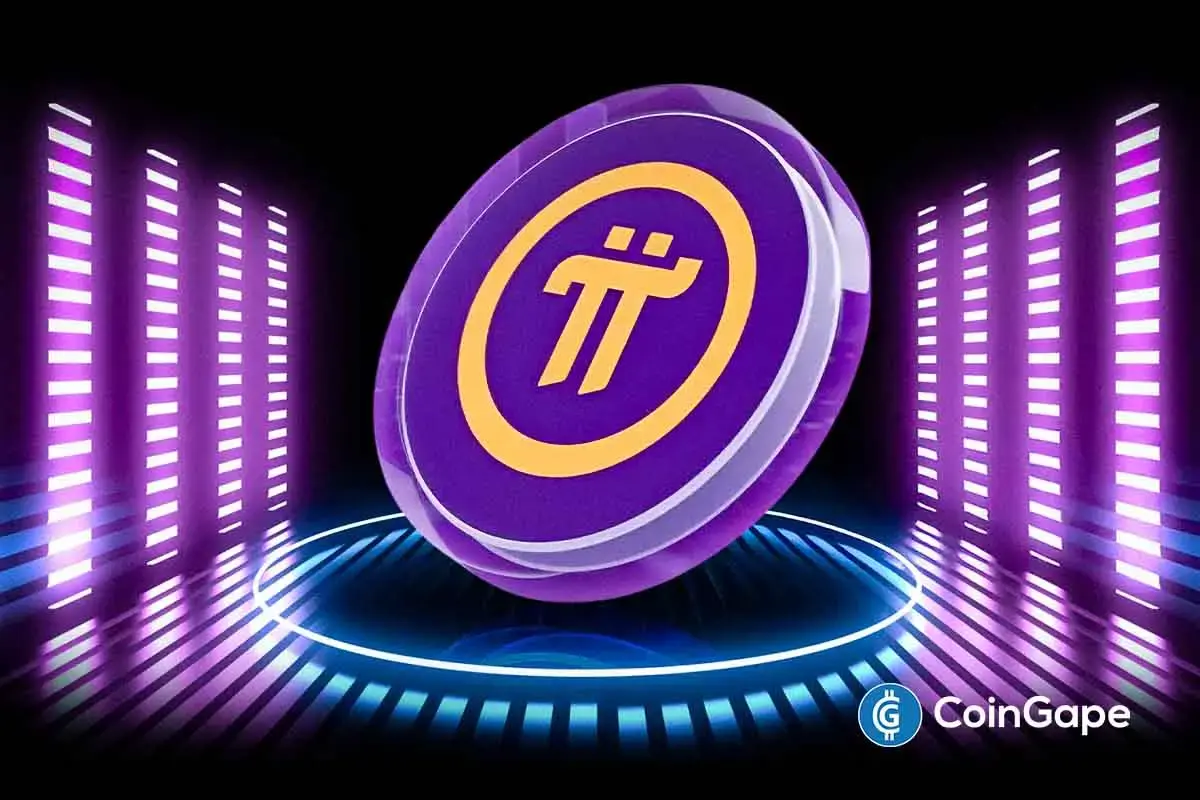
 Altcoin24 hours ago
Altcoin24 hours agoPi Network Faces Community Backlash, Is Pi Coin Price Heading to Zero?
-

 Regulation16 hours ago
Regulation16 hours agoKraken Obtains Restricted Dealer Registration in Canada
-

 Market24 hours ago
Market24 hours agoXRP Recovery Stalls—Are Bears Still In Control?
-

 Market23 hours ago
Market23 hours agoVanEck Sets Stage for BNB ETF with Official Trust Filing
-

 Market22 hours ago
Market22 hours agoBNB Price Faces More Downside—Can Bulls Step In?
-

 Bitcoin18 hours ago
Bitcoin18 hours agoLummis Confirms Treasury Probes Direct Buys
-

 Bitcoin24 hours ago
Bitcoin24 hours agoInstitutional Risk Aversion Drives $218 Million Bitcoin ETF Outflows
-

 Bitcoin22 hours ago
Bitcoin22 hours agoTokenized Gold Market Cap Tops $1.2 Billion as Gold Prices Surge






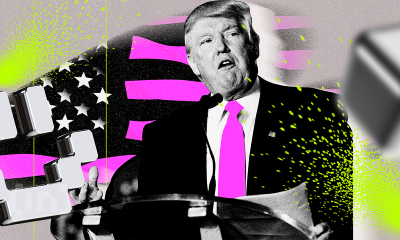





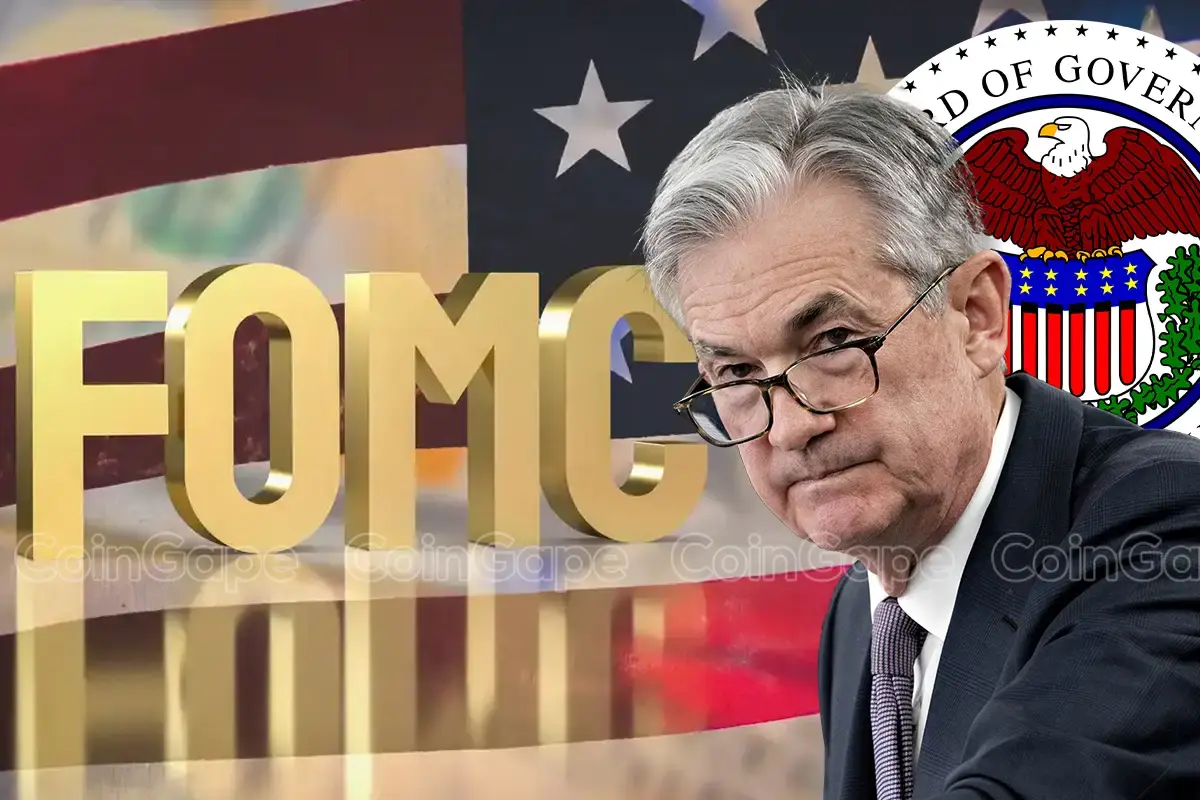




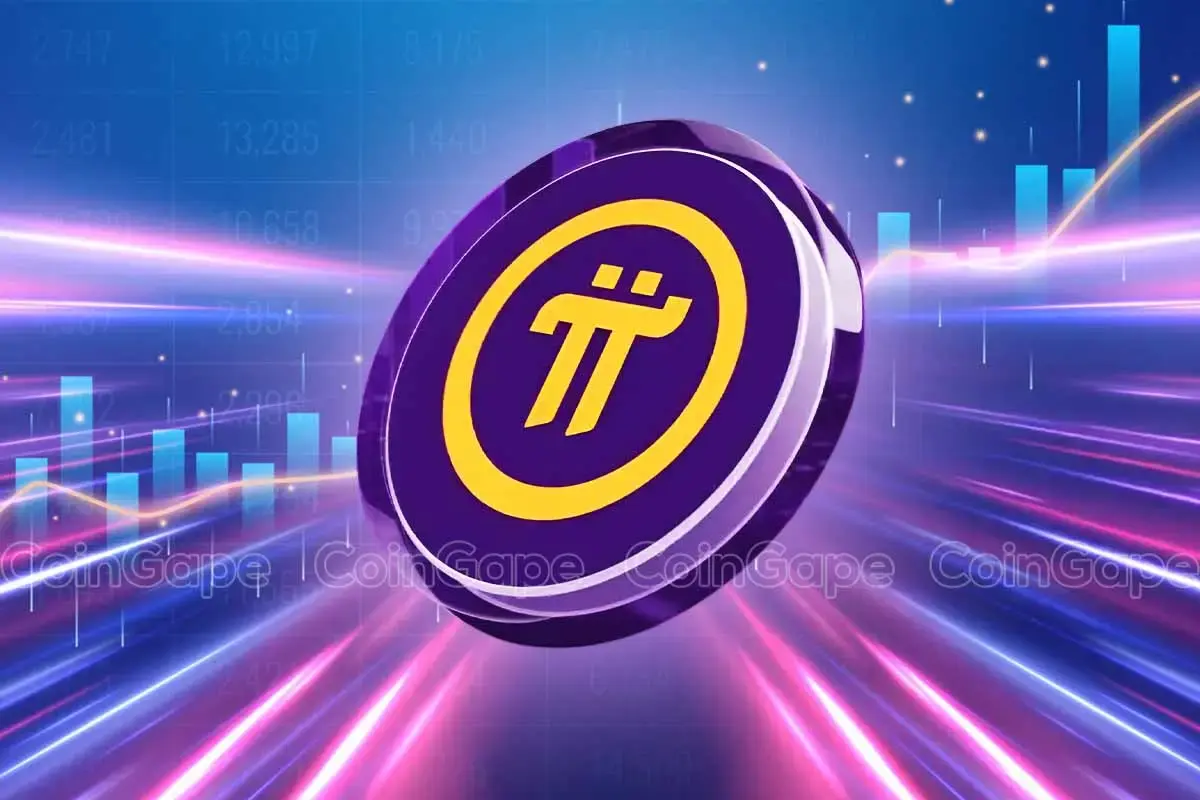







✓ Share: